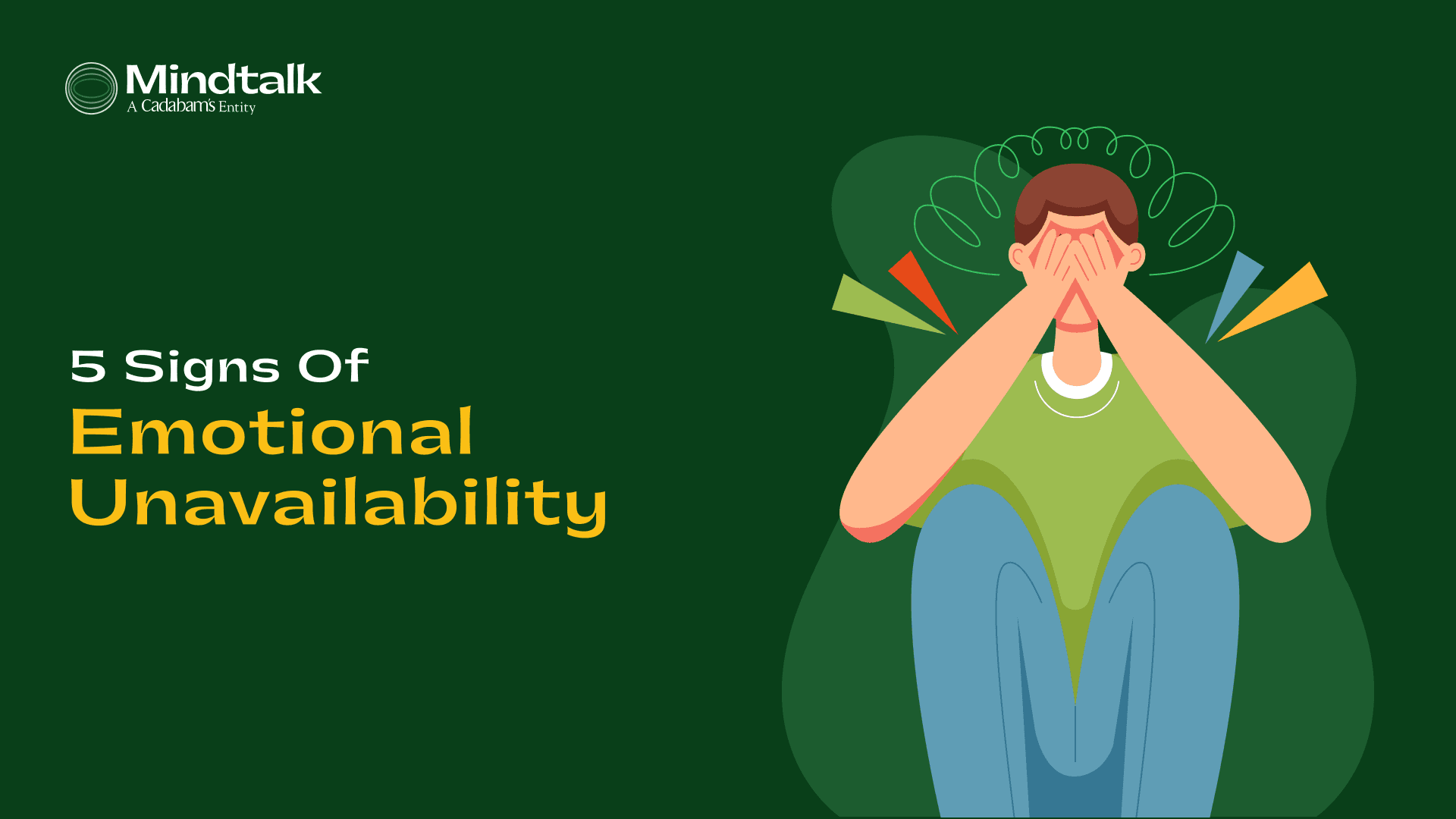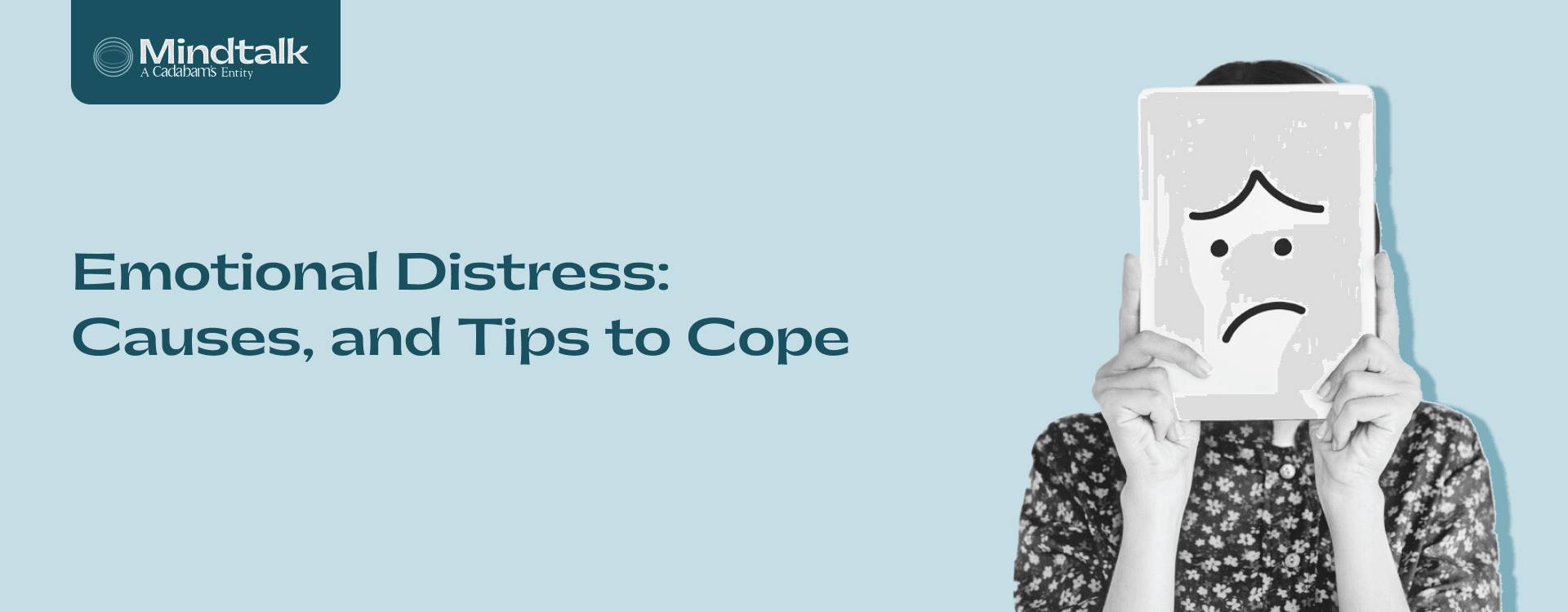Can you Control your Emotions?
Emotions are complex and deeply ingrained in our genetics and experiences, and they frequently operate as important cues that direct our behavior and decision-making. Our mental and even physical health may suffer greatly if we suppress or completely deny them. Additionally, because emotions are essentially subjective, what one person may perceive as under control may be overwhelming for another. Our emotional landscapes are shaped by cultural, social, and individual variances, which further complicate the idea of control. A more constructive strategy would involve acknowledging, accepting, and skillfully managing our emotions rather than attempting to exert complete control. When used appropriately, emotions may be tremendous catalysts for creativity, empathy, and personal development. As a result, the key to ultimate mastery is not emotional repression but adept emotional navigation.

Impact of your Emotions on you
Emotions shape our experiences in ways that are both beautiful and challenging. An essential step on the path to self-discovery and recovery is realizing the enormous influence that emotions have on your mental health.
Negative emotions can produce chronic stress when left unchecked, which can have a devastating effect on our physical health. Additionally, joyful, grateful, and loving feelings can be effective stress reducers.
Benefits of Emotional Regulation
Effective communication and healthier relationships are supported by emotional management. When you can control your emotions, you're less likely to behave rashly or violently in trying circumstances. As a result, there may be fewer disputes and more fruitful dialogues, resulting in deeper relationships. Second, emotional control aids in enhancing mental health. By empowering people to deal with unpleasant emotions in a better way, it lessens the negative impacts of long-term stress, anxiety, and depression. Individuals can build psychological resilience and keep a more optimistic attitude in life by managing their emotions, which will ultimately improve their overall well-being.
Identifying your Emotions
Your inner world speaks to you through your emotions, which can provide you insight into your wants and past experiences. The brain's amygdala, which processes emotions, becomes less active when we recognize and name them, resulting in calmer emotional reactions even under stressful circumstances.
Practical actions can help you recognize your emotions:
Take a minute to pause and reflect during stressful situations. Consider asking yourself, "What am I feeling right now?" Try to identify the feeling.
Use emotional vocabulary to explain what you're feeling. Increase your emotional vocabulary. You could become aware of other emotions than just "feeling bad," such as frustration, sadness, or anxiety.
Body Awareness: Be aware of the bodily feelings that accompany your emotions. For instance, anxiety frequently manifests as tense muscles or a racing heart.
How to Deal With Emotions
Your mental health can deteriorate significantly as a result of the constant pressures of modern life and society at large. This can also impair the efficiency of your daily schedules. As a result, emotions like rage, perplexity, fear, loneliness, and melancholy, to mention a few, may manifest. These emotions often have the strongest and most persistent influences in your life.
For better control of your emotions, the key is to recognize and name them. In times of emotional distress, be gentle to yourself. Recognize that it's ok to feel how you do. Self-compassion enables you to overlook your apparent flaws and take lessons from your mistakes.
Remember that regulating emotions, particularly in difficult circumstances, is a journey that calls for self-awareness, tolerance, and practice. As a result, you can learn to steer them in the right direction.
Tips to Control Your Emotions
Practical Techniques for Emotion Regulation:
As previously indicated, mindfulness is a powerful tool for controlling emotions. You can better handle stressful conditions by cultivating emotional resilience through constant practice.
Expressive arts therapy:
You can process and transform your emotions by getting creative with writing, music, or painting.
Exercise releases endorphins, which are naturally uplifting hormones.
Regular exercise helps reduce stress and enhance mental health in general.
Social Support: Having close relationships with friends and family offers emotional support and affirmation, which makes it simpler to deal with challenging emotions.
Can you Change your Emotions?
Your path to mental health starts with awareness. Here are some strategies for altering or managing your emotions:
Enhance Awareness and Positive Meaning
Remind yourself that you are in control of your feelings. Emotions grow from the seeds of our thoughts. Recognizing the patterns. This relationship enables you to break bad habits. Catch yourself early since strong negative emotions might make it difficult to think clearly. If you miss the opportunity, wait until your feelings have calmed down before trying to put a positive spin on the issue. Mental health depends on accepting full responsibility for your feelings.
Permission to Grieve and Grow
Grieving is necessary after significant life events. A loved one passing away, a breakup, losing a career, or a health concern are a few examples. It's important to communicate your feelings at this time. Remember that even in the dark, important choices can be made. The result is acceptance, so as you move forward on this road, be kind to yourself.
Questions that Shift Meaning
By raising empowering questions, you can alter the meaning of your thoughts. Consider the good and, if necessary, keep going. The excellent often hides beneath the surface.
Change your visualization and focus
Turn your attention in the direction of your goals. When things are changing, think about your potential, success, and prospects. Put your emotional resources into your goals.
Remodeling Your Language
Your inner dialogue matters. Change "I can't" with affirmative words. Even when you speak to others, your words have a significant emotional influence. Eliminate self-defeating language to promote mental positivity and emotional health.
How do you manage emotions healthily?
To manage emotions in a healthy way, interpersonal skills need to be fostered. We may use our emotions as a power source rather than allowing them to make us vulnerable. This can be achieved through honing our emotional intelligence. In practice, this entails having frank discussions with reliable people, such as friends, family, or a therapist. Furthermore, engaging in comprehensive self-care practices like working out, eating a balanced diet, and getting enough sleep can dramatically improve emotional resilience.
Mental Health Professional For Mood Disorder
Can Therapy Help?
The ability to control one's emotions is essential for mental health, yet it can be challenging to do it on your own. Recognizing the symptoms of emotional discomfort is crucial since doing so may prompt you to ask a mental health professional for assistance. Among these indications are:
1.Mood swings or frequent emotional outbursts
2.Inability to restrain one's unpleasant emotions and thoughts
3.Persistent depressive, anxious, or angry feelings
4.Inability to manage challenges in daily life
5.Relationships are negatively affected as a result of emotional instability
Therapies like cognitive-behavioral therapy (CBT) give patients useful tools for recognizing, challenging, and reframing unhelpful thought patterns, which improves emotional regulation.
DBT offers a holistic approach to managing emotions by introducing mindfulness practices, emotional regulation strategies, interpersonal efficacy, and distress tolerance techniques. Additionally, as therapists provide their patients with a safe, judgment-free environment to examine the underlying reasons for their emotional difficulties and promote self-awareness and self-compassion, the therapeutic relationship transforms into a caring cornerstone for emotional development.



